Types of Patchwork Tiles
Patchwork tiles can be either small or large, in which case the pattern on them imitates the layout of smaller patterned tiles. In addition to size, they differ in texture and color. The texture can be rough or smooth, shiny or matte, porous or with a glaze coating on top. The colors of the patterns are monochrome, containing two, three or more colors.
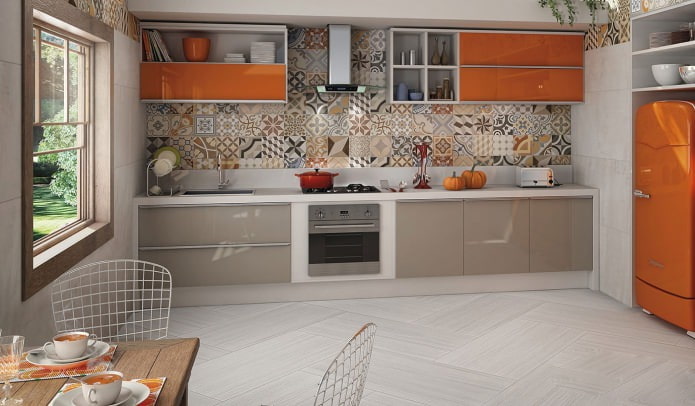
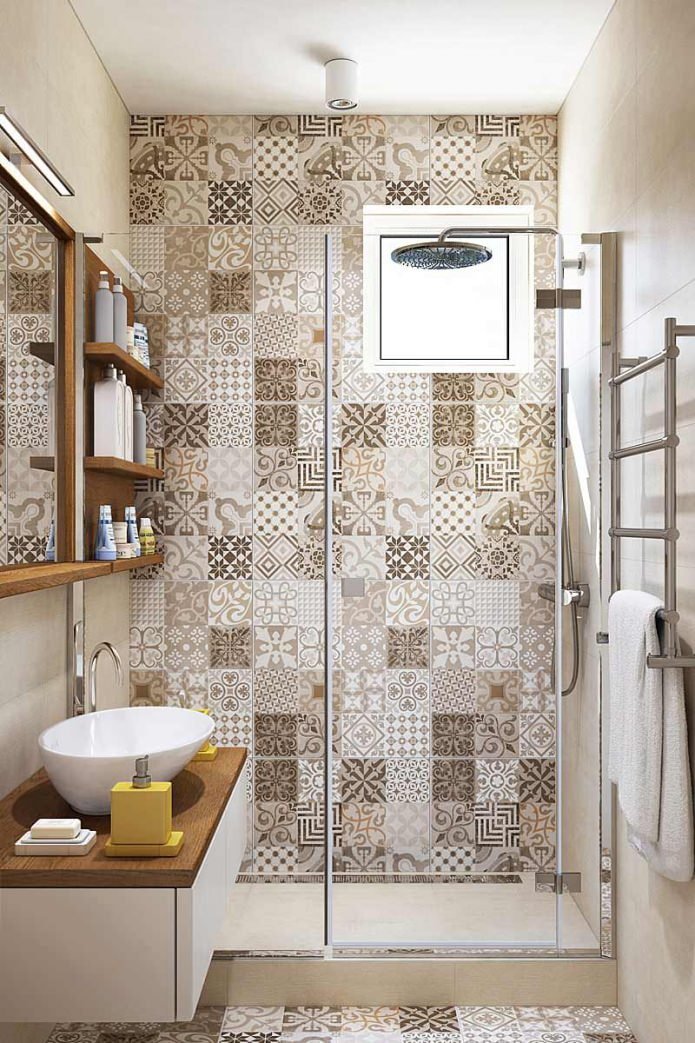
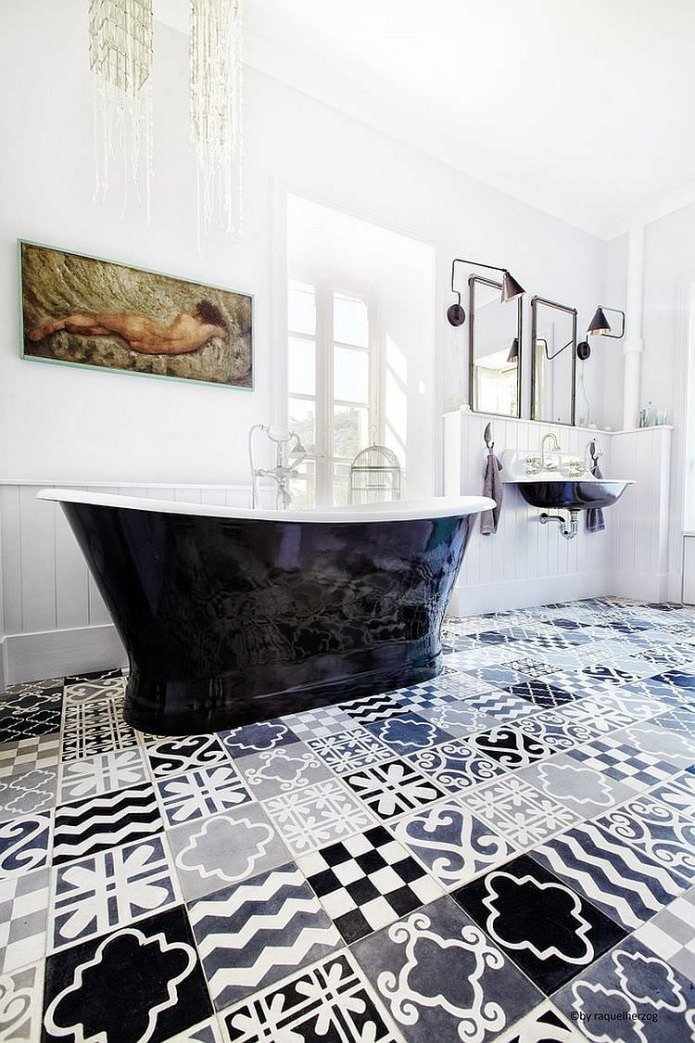 patchwork in the bathroom”/>
patchwork in the bathroom”/> 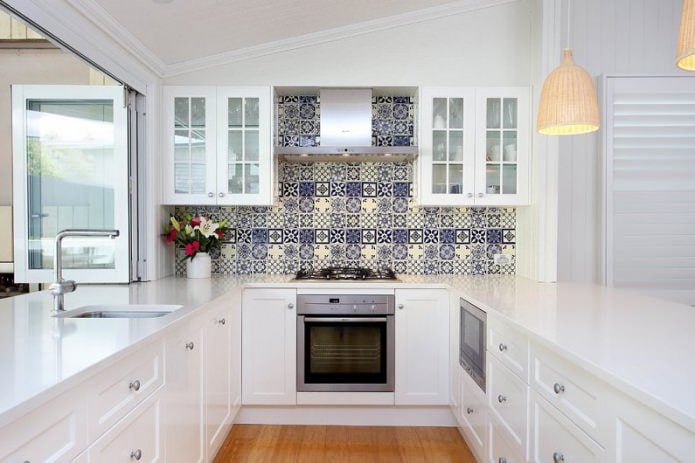
The most popular are graphic black and white, blue and white patterns, as well as tiles in beige and brown tones. The most popular are the same as on fabrics: flowers, patterns, polka dots, checkered. Geometric and abstract patterns are also found in patchwork.
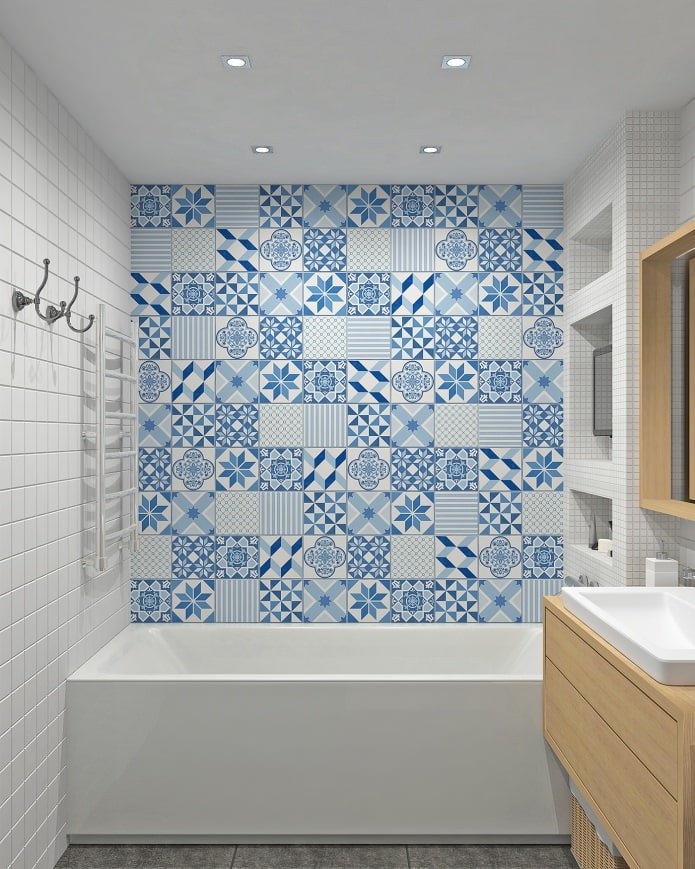
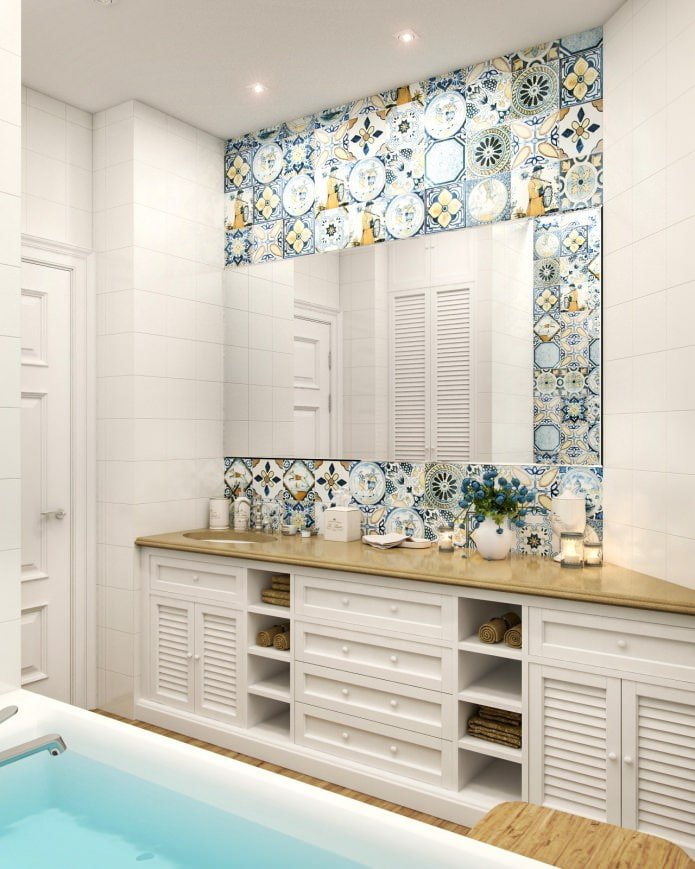
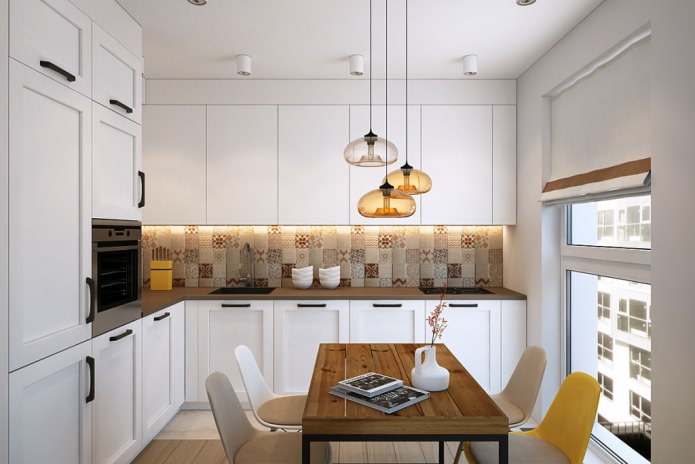
Combinations
Patchwork provides unlimited possibilities for combinations to create truly exclusive and expressive interiors. Everyone can choose the colors and patterns that are closest to them, but it is much easier to buy ready-made sets, the assembly of which was worked on by designers.
If you want to choose the tiles yourself, you need to consider the following subtleties:
- all elements must be of the same thickness, and also have the same edge, it is good if their surface is also processed in the same way;
- tiles can have different colors and patterns, but they must necessarily be harmoniously combined with each other, for this it is necessary that either the pattern, or the color, or the style match;
- the easiest way is to combine monochrome, as well as those where no more than three colors are used;
- if many different colors and patterns are used in the tile, it can have an irritating and stimulating effect on the nervous system, and should be used in doses.
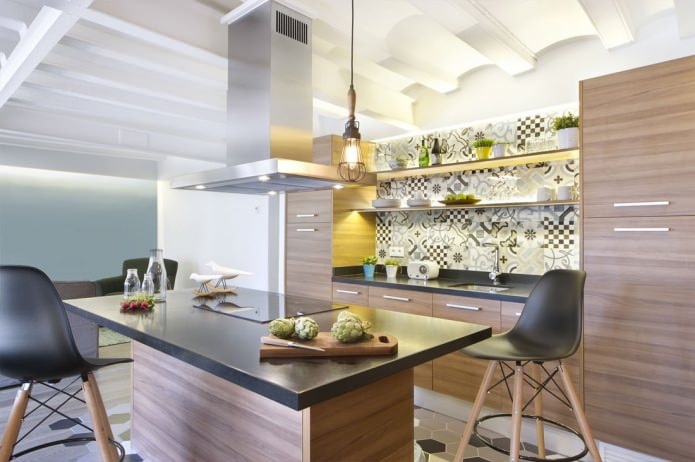
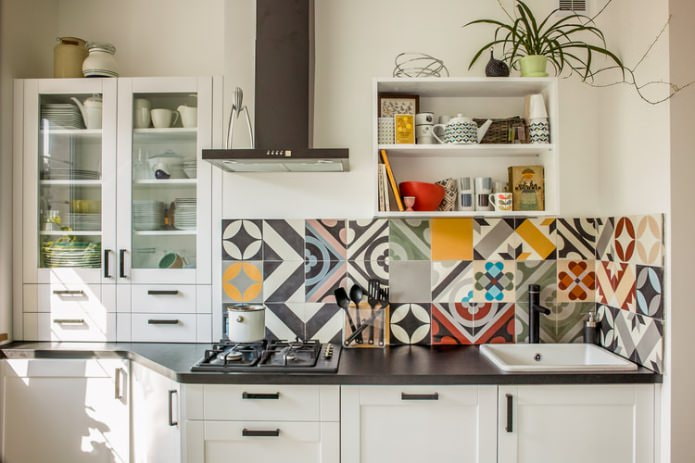
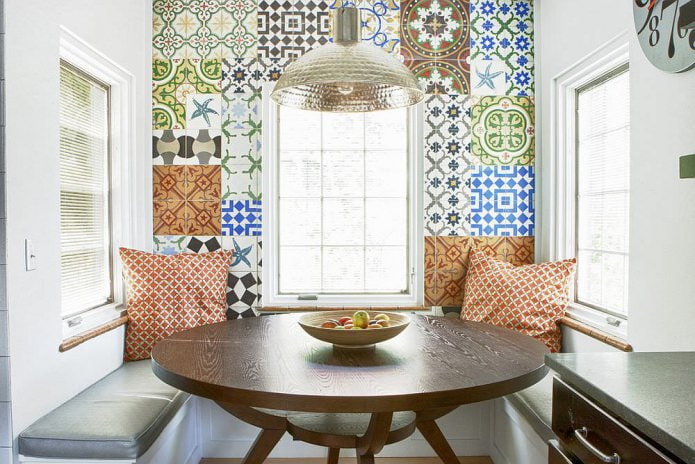
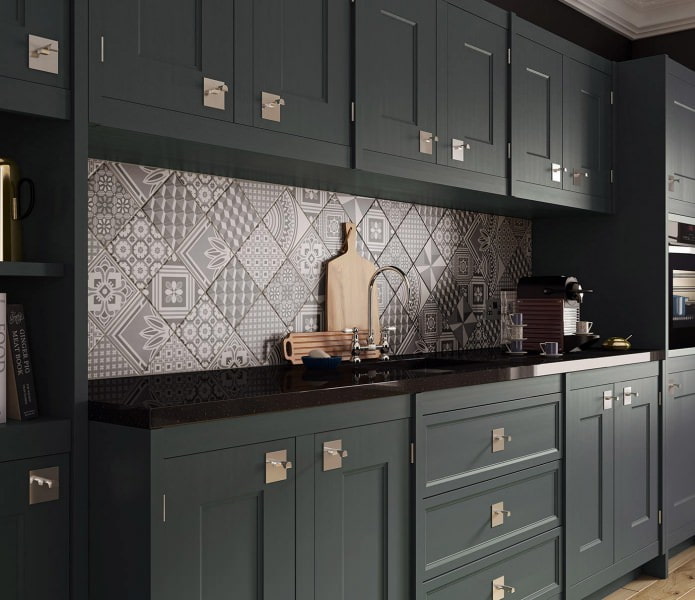
Style and color
Patchwork tiles can be used in almost any interior if you choose the right pattern and color.
Minimalism
Here you can use patchwork tiles of both neutral tones – gray-white, gray-black, and colored – in beige, blue tones. Bright patterns like this will bring brightness and home comfort to strict minimalism.
If the entire room is done in monochrome, you can decorate it not only with bright colored tiles, but also with single-color or two-color tiles with imitation patchwork – the main thing is that these colors match the main colors of the rest of the decoration. In this case, patterns become the main decoration. They can be laid out in such a way as to form some kind of pattern, or, on the contrary, “in a breakdown” – this will create an additional decorative effect.
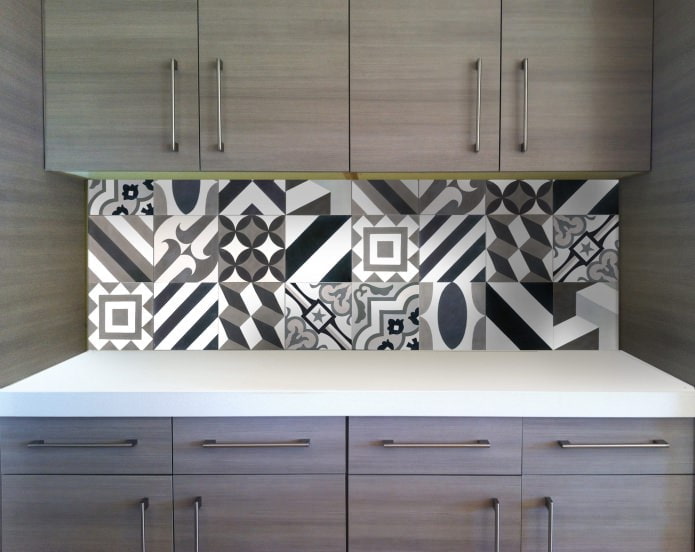
The photo shows an example of a monochromatic apron in the kitchen.
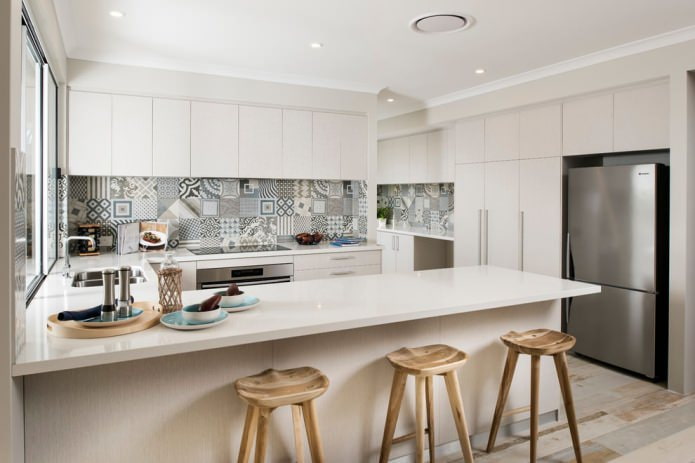
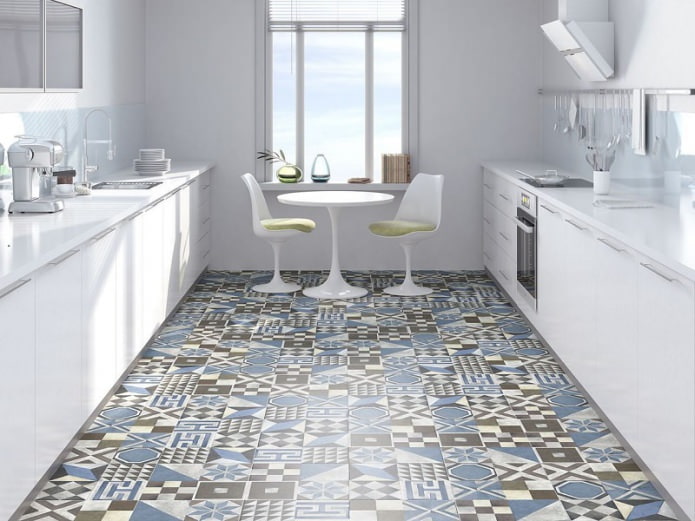
Country
In this style, the use of patchwork technique looks most natural. It is acceptable to use monochrome patterns, as well as multi-colored patchwork tiles, however, multi-colored tiles are often used for the kitchen to complement the artistic image.
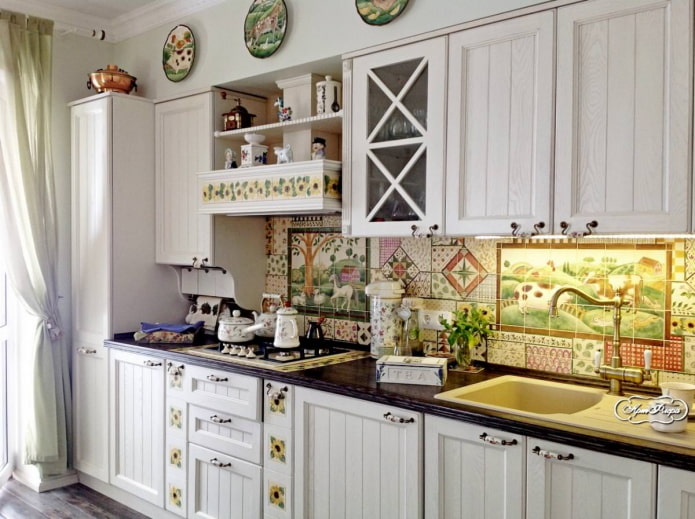
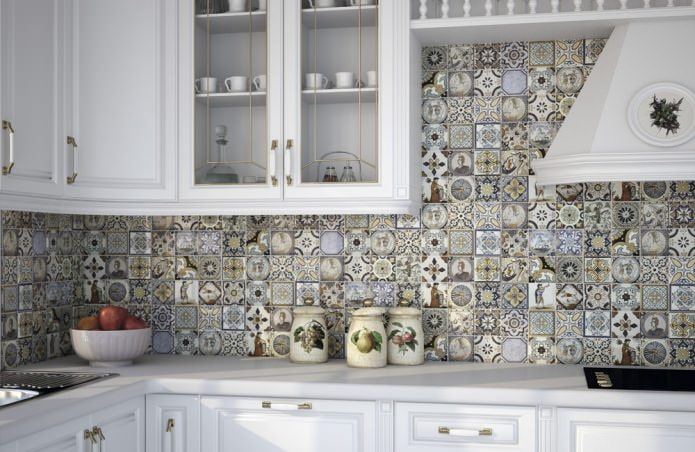
Retro
Patchwork technique is a historical tradition, so patchwork is perfect for decorating interiors in retro style. As a rule, patchwork tiles are selected with a pattern that gives the impression of being half-erased or slightly faded.
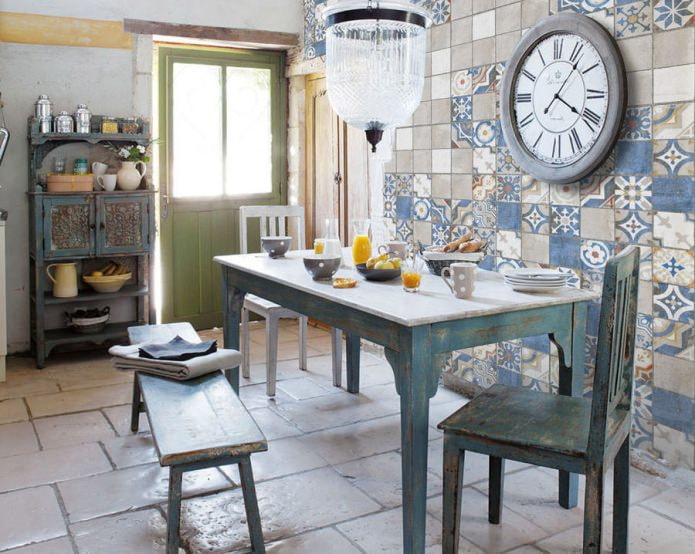
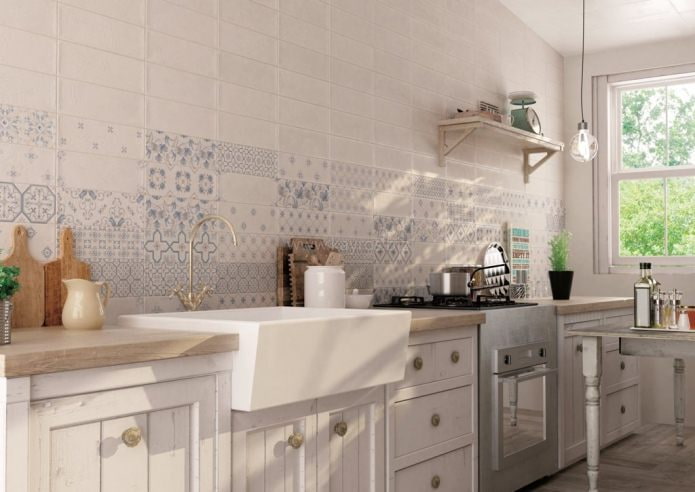
Other styles
The Dutch tradition of ceramics in white and blue tones, which came to Russia and was developed in Gzhel, is perfect for both country and Scandinavian styles. The white and blue color scheme gives the cladding lightness and airiness, due to which it can also be used in Mediterranean, Provencal and classical styles.
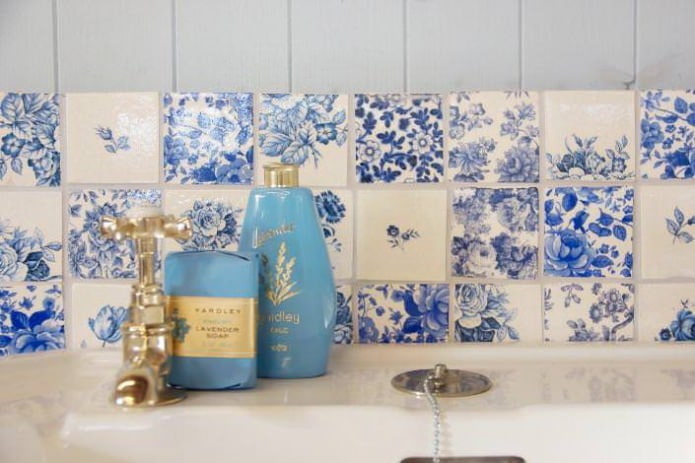
Photos in the interior
Patterned patchwork tiles are used in all the same places as ordinary ones – these are the bathroom and toilet, kitchen apron, floor coverings in the kitchen, hallway, balcony, and entrance area.
As a rule, “patchwork rugs” are laid on the floor made of such tiles; a similar solution can be found in the kitchen and bathroom. This makes it possible to highlight a particular functional area, for example, a dining area in the kitchen, a shower area in the bathroom or an entrance area in the hallway.
Patchwork tile design in the bathroom
Tiles in gray tones will look great for the bathroom interior. Then the interior will be restrained and laconic. If you want to add expression, you can add bright accents.
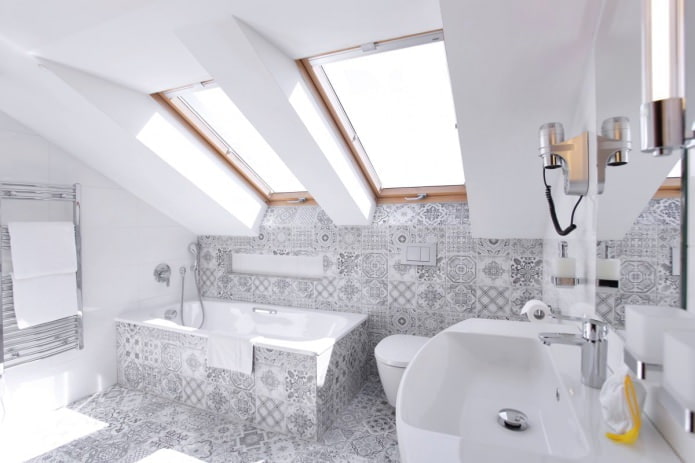
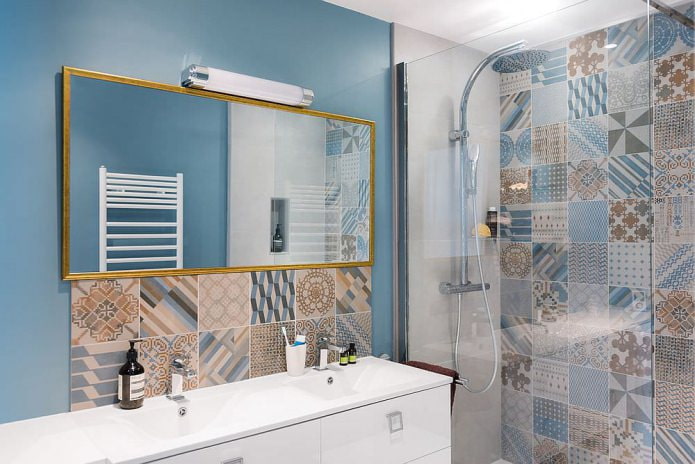
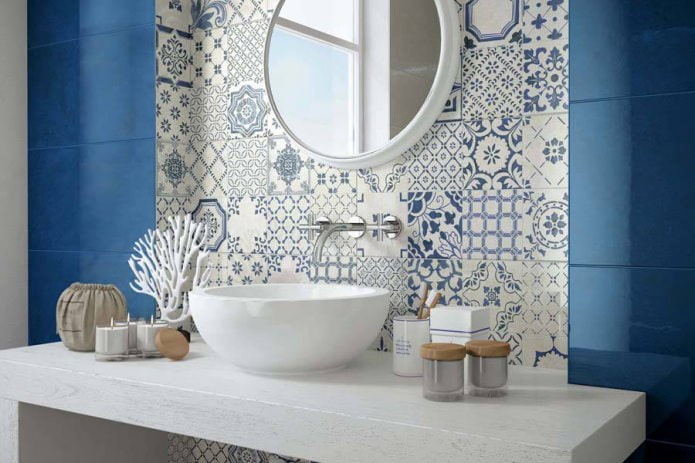
Photo of a kitchen with patchwork tiles
When decorating a kitchen, this type of finishing can be used for zoning. Patchwork tiles are also often used as decorative elements on walls or for flooring.
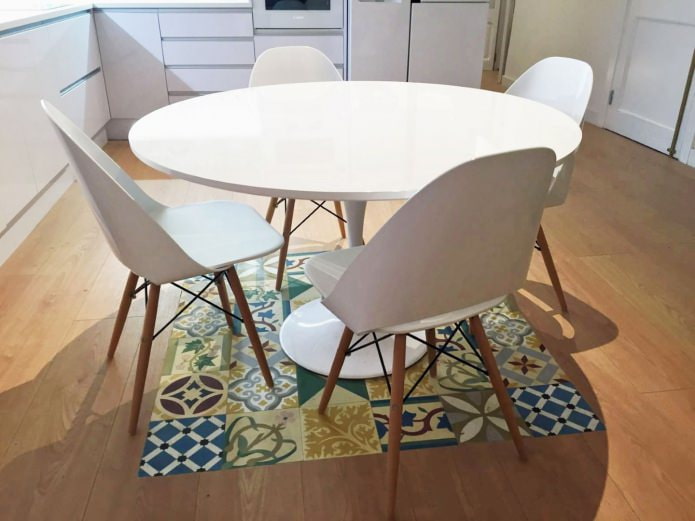
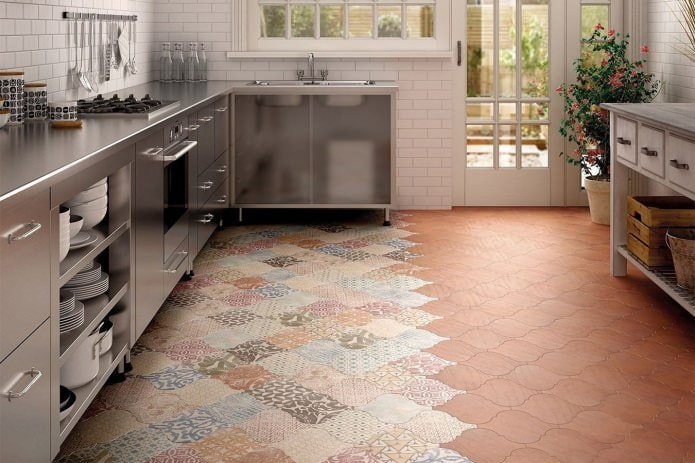
The photo shows a combined kitchen floor, partially finished with plain patchwork tiles.
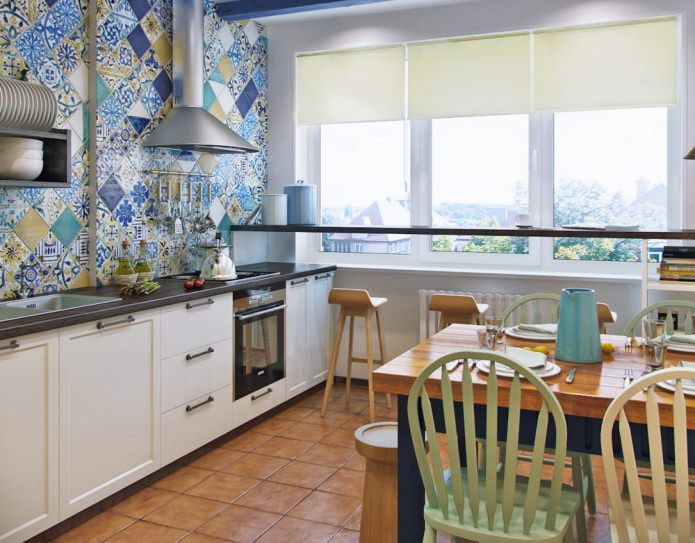
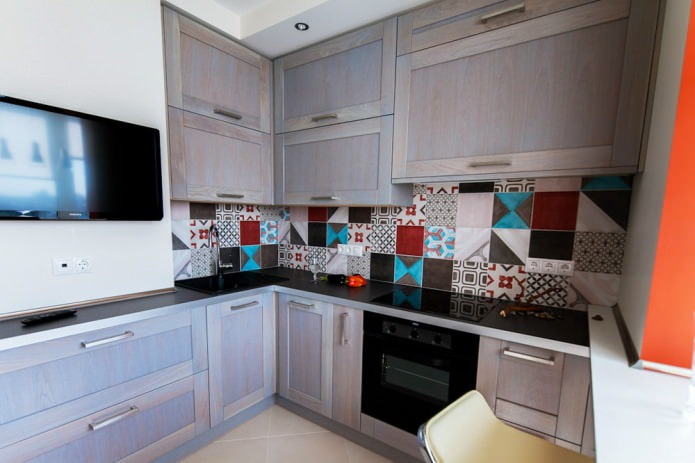
The photo shows a kitchen apron made of patchwork tiles.
Examples of use in the kitchen-living room
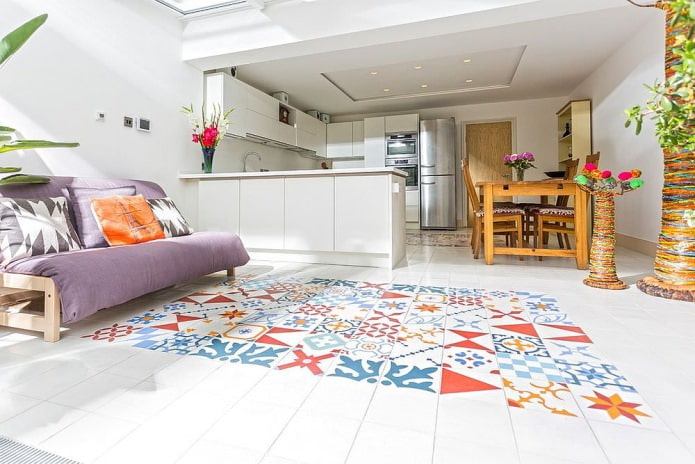
It is appropriate to place a panel of patchwork tiles on the wall – it will become the main decorative accent of the living room, or highlight the dining area.
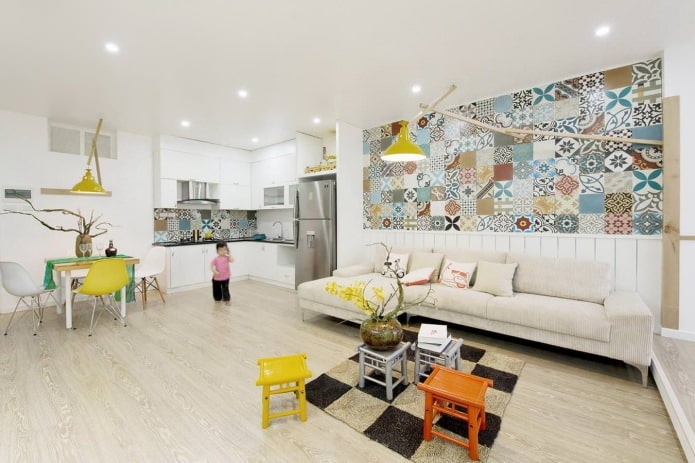
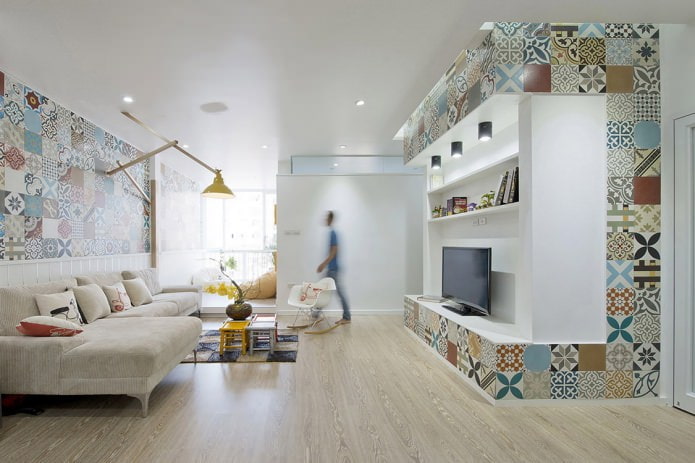
Patterned patchwork goes great with regular, smooth and plain tiles. By combining them, you can avoid excessive variegation in the interior. Please note that patchwork is an active and bright pattern, if there is too much of it, it will draw all the attention to itself and can break the geometry of the room. A large number of such patterns will make your eyes water, so they should be used in moderation.
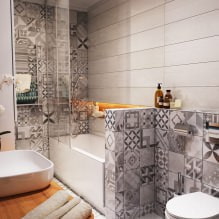
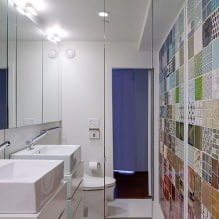
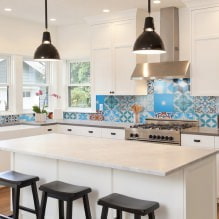
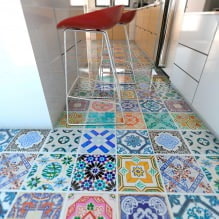
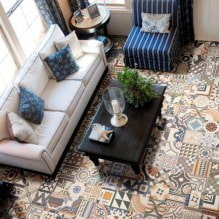
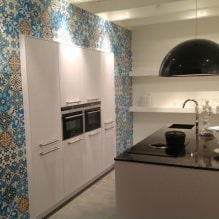
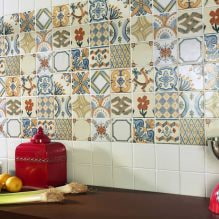
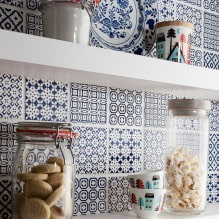
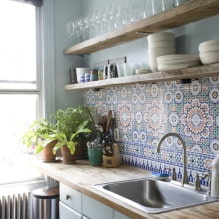
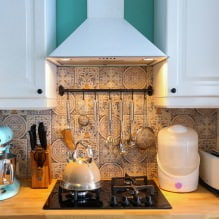
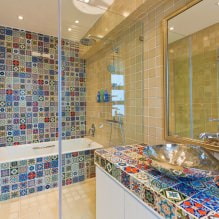
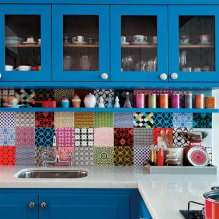
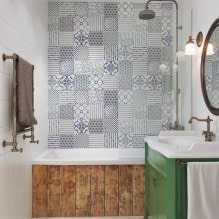
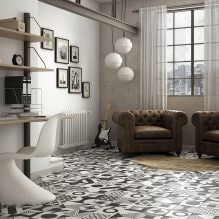
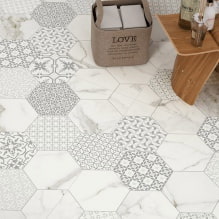
Now reading:
- Comprehensive Guide to Buying a Used Peugeot 407
- Parallel Kitchen: 30 Inspiring Photos and Design Ideas for Two Rows
- 12 aesthetic options for painting wooden houses for inspiration when updating the facade
- Children’s room: zoning and the best ideas in 35 photos
- Comprehensive Guide to Buying Used Opel Mokka/Mokka X